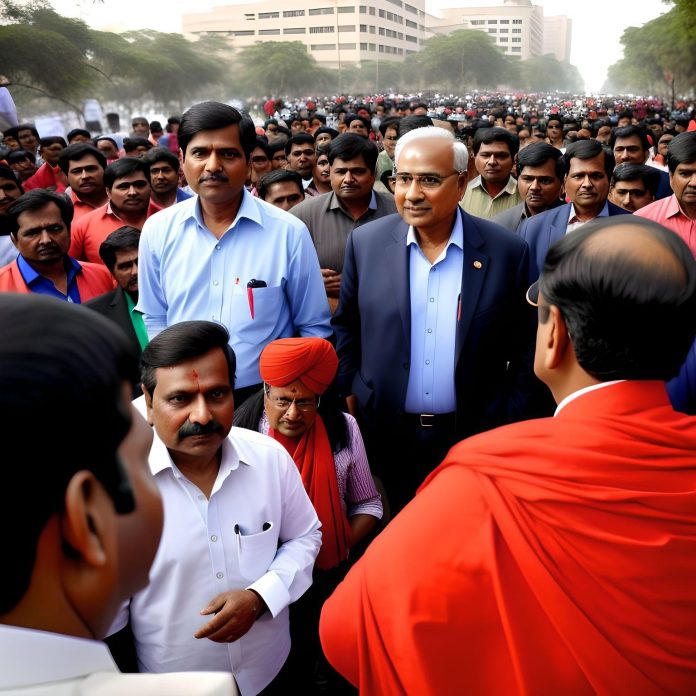The realm of Indian politics is a dynamic and intricate landscape that has witnessed both triumphant victories and bitter defeats. Political campaigns play a pivotal role in shaping the course of elections and determining the fate of political leaders and parties. By analyzing both successful and unsuccessful Indian political campaigns, we can extract valuable lessons that shed light on the strategies, pitfalls, and dynamics of this complex arena.
Lessons from Successful Campaigns
1. Clear Vision and Message
One of the consistent factors in successful Indian political campaigns is a clear and resonant vision. Leaders who can articulate a compelling vision for the future and convey it effectively to the masses tend to garner greater support. A campaign that focuses on addressing key issues and proposing concrete solutions creates a sense of trust and credibility among voters.
2. Effective Communication
Communication is the cornerstone of political campaigns. Leaders who can effectively communicate with various sections of the society, using both traditional and modern communication channels, tend to have a wider reach. Utilizing social media, public rallies, and direct interactions, successful campaigns ensure that their message reaches diverse demographics.
3. Building Alliances and Coalitions
Political campaigns are not solitary endeavors. Forming alliances and coalitions with like-minded parties or groups can significantly boost a campaign’s chances of success. This strategy allows parties to pool resources, expand their support base, and tap into different voter segments.
4. Localized Approach
India is a diverse country with varied cultural, social, and economic contexts. Successful campaigns tailor their strategies to suit local dynamics. Understanding and addressing region-specific issues and concerns can create a deeper connection with voters.
5. Empowering Ground-level Workers
The efforts of grassroots workers are often the driving force behind successful campaigns. These workers engage with voters at the local level, spreading the campaign’s message and addressing individual concerns. Recognizing and empowering these workers is crucial for effective outreach.
Lessons from Unsuccessful Campaigns
1. Lack of Credibility
Unsuccessful campaigns often falter due to a lack of credibility. Promises that are unrealistic or unfeasible can erode the trust of voters. It’s important to maintain transparency and honesty throughout the campaign to build a strong foundation of credibility.
2. Negative Campaigning Backlash
While contrast and critique are part of political campaigns, excessive negative campaigning can backfire. Voters tend to respond more positively to campaigns that focus on positive attributes and solutions rather than attacking opponents.
3. Ignoring Grassroots Connect
Neglecting grassroots-level campaigning can lead to failure. While media and digital outreach are essential, a strong ground-level presence is equally important. Campaigns that solely rely on grand rallies and media attention might miss out on connecting with the grassroots.
4. Failure to Adapt to Change
The landscape of politics is evolving, with new issues and technologies shaping the discourse. Campaigns that fail to adapt to these changes can quickly become irrelevant. Embracing technology, understanding emerging concerns, and utilizing innovative campaign methods are essential.
5. Ineffective Utilization of Data
Data-driven insights have become crucial in modern political campaigns. Campaigns that do not leverage data analytics to understand voter behavior, preferences, and trends may struggle to make informed decisions and tailor their strategies effectively.
Conclusion
Successful and unsuccessful Indian political campaigns offer a treasure trove of insights for political leaders, strategists, and observers. While there is no guaranteed formula for victory, the lessons learned from both triumphs and setbacks provide a roadmap for navigating the complex terrain of Indian politics. Clear messaging, effective communication, adaptability, and respect for grassroots efforts emerge as recurring themes in the narratives of successful campaigns. Conversely, failures highlight the perils of negative campaigning, lack of credibility, and a failure to embrace change.
As India’s political landscape continues to evolve, these lessons remain ever relevant, guiding the endeavors of those who seek to sway public opinion, bring about change, and shape the nation’s destiny through the power of democratic processes.

